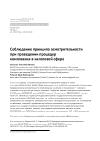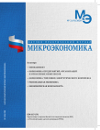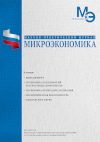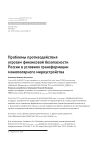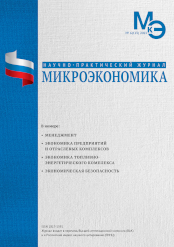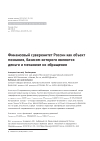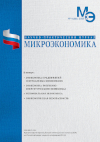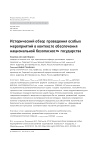Identification, identification of falsification and counterfeiting as tools to ensure the economic security of production and trade by the 43rd commodity group of the EAEU customs code of foreign economic activity
DOI: 10.33917/mic-1.120.2025.56-73
This article examines the organizational and economic aspects of identification, identification of falsification and counterfeiting as tools to ensure the economic security of production and trade of 43 commodity groups of the EAEU Customs Union (fur goods) in modern conditions. An analysis of the current situation shows that ensuring the economic security of the fur trade is not balanced in the Russian Federation and the state may lose the furring skills of industry operators, as well as the technological culture of manufacturing and wearing natural furs.
The state needs to create further conditions for the development of the domestic fur industry, ensuring economic security, countering low-quality counterfeit imports of fur products, which unscrupulous sellers sell, posing as Russian goods, and introduce protectionist measures to protect and support Russian producers.
References:
1. Annekar V.V. The «Honest mark» labeling system in the paradigm of non-food consumption of natural fur products. The Constitution. 2023;8(2). URL: https://kostumologiya.ru/PDF/16TLKL223.pdf
2. Beketov S.V. Mandatory labeling of fur products. Rabbit breeding issues. 2020;5-6:57-62.
3. Bystrova N.Yu., Akopova E.I. Determination of safety indicators of fur products. In the collection: Innovative technologies: leather, fur, chemical materials, production. Moscow, 2023. pp. 15-17.
4. Guz N.A., Bozhenova A.A. Introduction of product traceability systems: foreign experience and domestic practice. risk: Resources, Information, Supply, Competition. 2022;2:6-12.
5. Zalomaeva E.O. The process of making economic decisions and consumer behavior from the point of view of neuroeconomics (on the example of the fur market). In the collection: Economics and Innovation. Moscow, 2022. pp. 81-85.
6. Kvyatkovsky D.V. The impact of the introduction of the EGAIS «Honest Mark» labeling system on the turnover of counterfeit goods in Russia. Legal science. 2023;11»236-239.
7. Kibzun V.N., Nagornaya N.P. Segmentation of consumers of fur products in a trading enterprise and forecasting demand for them. Bulletin of the Donbass National Academy of Construction and Architecture. 2021;1(147):34-42.
8. Kirsanova E.A., Bodryakova L.N., Tyumentseva E.Yu. Development of approaches to improving the efficiency of production processes for manufacturing products from fur semi-finished products. Design and technology. 2021;82(124):24-30.
9. Kostyakova Yu.V. The sale of foreign-made fur products subject to labeling: customs aspects. Financial economics. 2020;2:142-147.
10. Kochetkova N.G. On the marking of fur products with control (identification) signs. Science Alley. 2018;3(6(22)):556-562.
11. Markina A.S. Problems of labeling fur products in Russia and ways to solve them. International Journal of Humanities and Natural Sciences. 2023;2-1(77):224-227.
12. Mukhina V.S. Control identification mark (KEYES) of fur products. In the collection: Actual problems of branch legal science. Vladimir, 2020. pp. 95-100.






